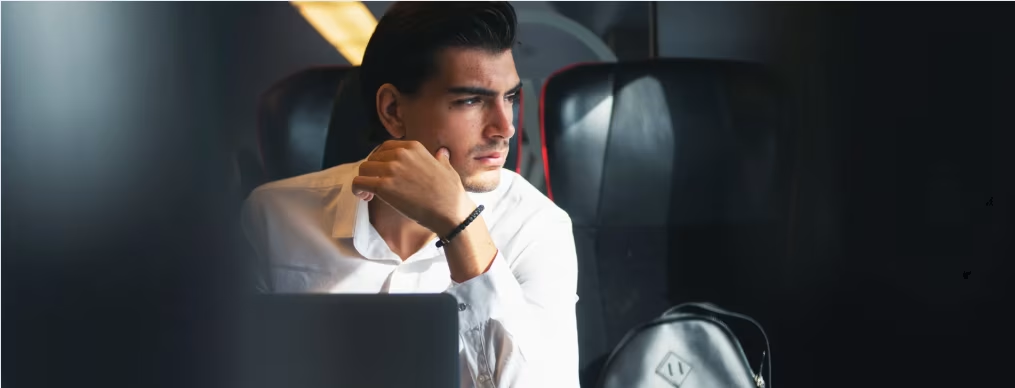
Check out cultural customs in popular destinations for business travel
Business travel is on the rise again, but the landscape has changed. With the rise of remote work and video conferencing, many businesses are questioning the need for as much in-person travel as they used to. However, there are still many reasons why business travel is important, such as building relationships with customers and suppliers and attending industry events.
If you’re planning a business trip, it’s important to be aware of the cultural customs of your destination. This can help you avoid any faux pas and make a good impression on your business associates. cultural customs
A key reason for business travel is to meet suppliers and customers, and video calls show strong potential to replace in-person meetings, resulting in less business travel for the salesperson. Business travels that are meant for training and other learning activities will also be reduced, and e-learning will witness rapid adoption rates. Another major travel reason is to motivate and reward customers or employees, which can also be carried out remotely. Employees of most companies have already become familiar with virtual meetings due to the pandemic, thus reducing the significance of face-to-face meetings.
In the post-COVID-19 period, millennials born after the mid-90s who are likely to rule the workplace will significantly influence the dynamics of whatever is left of the travel industry. Also known as Gen Z, Millennials are always connected to smartphones and social media, seek fast Wi-Fi, and use hashtags to describe objects and feelings. Business travel will be highly influenced by them over the next decade, with their desire to be in a certain place only at a certain time. The travel sector will facilitate this need by using the multiple options IoT has to offer. With this as a goal, key travel players are using the digital platform to make the right offer to the right customer at the right time.
To help the rising number of UK business travellers prepare for international trips and to ensure they are as successful as possible, the award-winning airport parking operator, Airport Parking and Hotels has put together a guide highlighting the cultural customs when it comes to polite etiquette in popular destinations for business travel.
The guide draws attention to cultural customs that should be upheld and acknowledged when visiting 10 destinations, such as Japan, the UAE, and the USA. The guide compares the recommendations behind greetings, gift-giving, dining, and business attire, as well as the appropriate decorum when handing out business cards.
First Impressions Count
Although shaking hands is unsurprisingly the most universal form of greeting a business associate, travellers should only use the right hand when shaking hands in India and the United Arab Emirates, as accidentally using the left hand is considered unclean. In Brazil and Canada, it is polite to greet women with a kiss on both cheeks, and in China, Singapore, India, and the United Arab Emirates, it is customary to greet the most senior or eldest person first out of respect. When entering a Japanese meeting room, it is customary to knock three times, but travelers should make a note not to knock two times because this is the traditional way to check if a bathroom stall is occupied.
Giving and Receiving Gifts
Gift-giving is an important part of international business protocol, especially in Japan and China, where gifts should be taken to the first business meeting. In these countries, presents should be given and received with two hands and should never be opened in front of the giver. Similarly, gifts of four and nine items should be avoided, as they are considered unlucky in Japan, as are white flowers and potted plants, which are associated with funerals and sickness. Business gifts are also appreciated in the United Arab Emirates, where they should be opened as soon as they are received, and in India, where sweets are the number one choice of gift. However, in Singapore, Ireland, and Australia, gifts are not essential for business meetings, and furthermore, in Brazil, giving a gift to a business associate is seen as a form of bribery.
Table Manners
Dining with new contacts is a great way to build relationships, but in Singapore, Brazil, and Australia, business discussions should be kept away from mealtimes, and when dining in Singapore, it is polite to let your host order for you. A great way of creating rapport with business associates ‘Down Under’ and in Ireland is to pay for a’shout’, or a round of drinks. For business travellers visiting India, Singapore, and the United Arab Emirates, it is considered inappropriate to ask for alcohol when it is not offered. It is also customary here, as in India, to only eat with the right hand because the left hand is considered unclean. Other faux pas that should be avoided in Japan and China include leaving chopsticks straight up in rice bowls and using chopsticks for communal dishes when sharing plates of food. It is also important to remember that fish in China should never be flipped over on a plate as this is bad luck and symbolizes a fishing boat capsizing. And, while slurping food is a dinner-time no-no in the West, in China and Japan it is good practice to slurp noodles.
Dress to Impress cultural customs
Fashion-forward folk will be pleased to know that clothes and accessories worn to a business meeting in Brazil are almost as important as the meeting itself. On the other hand, when travelling for business in countries such as the USA, the UAE, and Canada, formal and conservative suits are essential, especially for women working in the UAE, where clothing should cover the shoulders and knees. Business travelers in the United Arab Emirates and Singapore should make a conscious effort not to show the bottom of their shoes when they sit during meetings, as this is considered rude, and for those travelling to China, white clothing should be avoided since this is worn at funerals.
Business Card Etiquette cultural customs
As with meetings in the UK, it’s expected that business cards will be exchanged when meeting a new contact. The act of presenting business cards is important, since in the UAE and India business cards should only be touched with the right hand. Likewise, in Japan, Singapore, and China business cards should be shown with the utmost respect and received with two hands. Rushing to put business cards straight into wallets or stuffing them into back pockets is highly frowned upon in Japan and Singapore and instead, they should be left out face-up during meetings and put away after. Lastly, it is common practice when travelling to destinations such as Brazil and Canada’s French provinces to print business cards in English and the local language.
Small Talk Matters cultural customs
When travelling for business, it always pays to be punctual and prepared for small talk. However, business travellers visiting Japan and Singapore should embrace silence, as this is valued more than an abundance of talking. It is also important to respect working weeks that are structured differently; for example, when conducting business meetings in the United Arab Emirates, it is best to schedule these for Thursday or Sunday so that Friday can be observed as a holy day.









